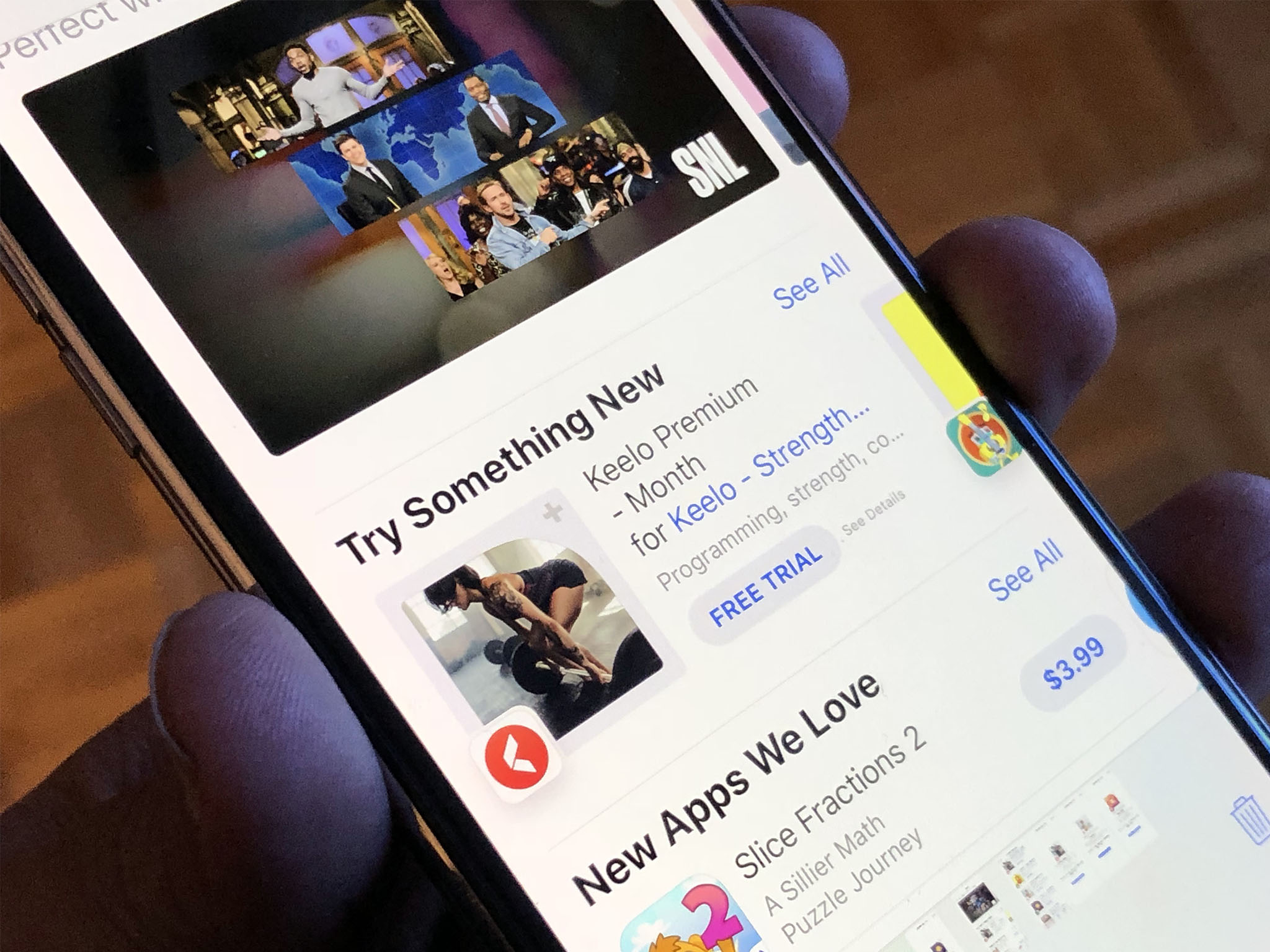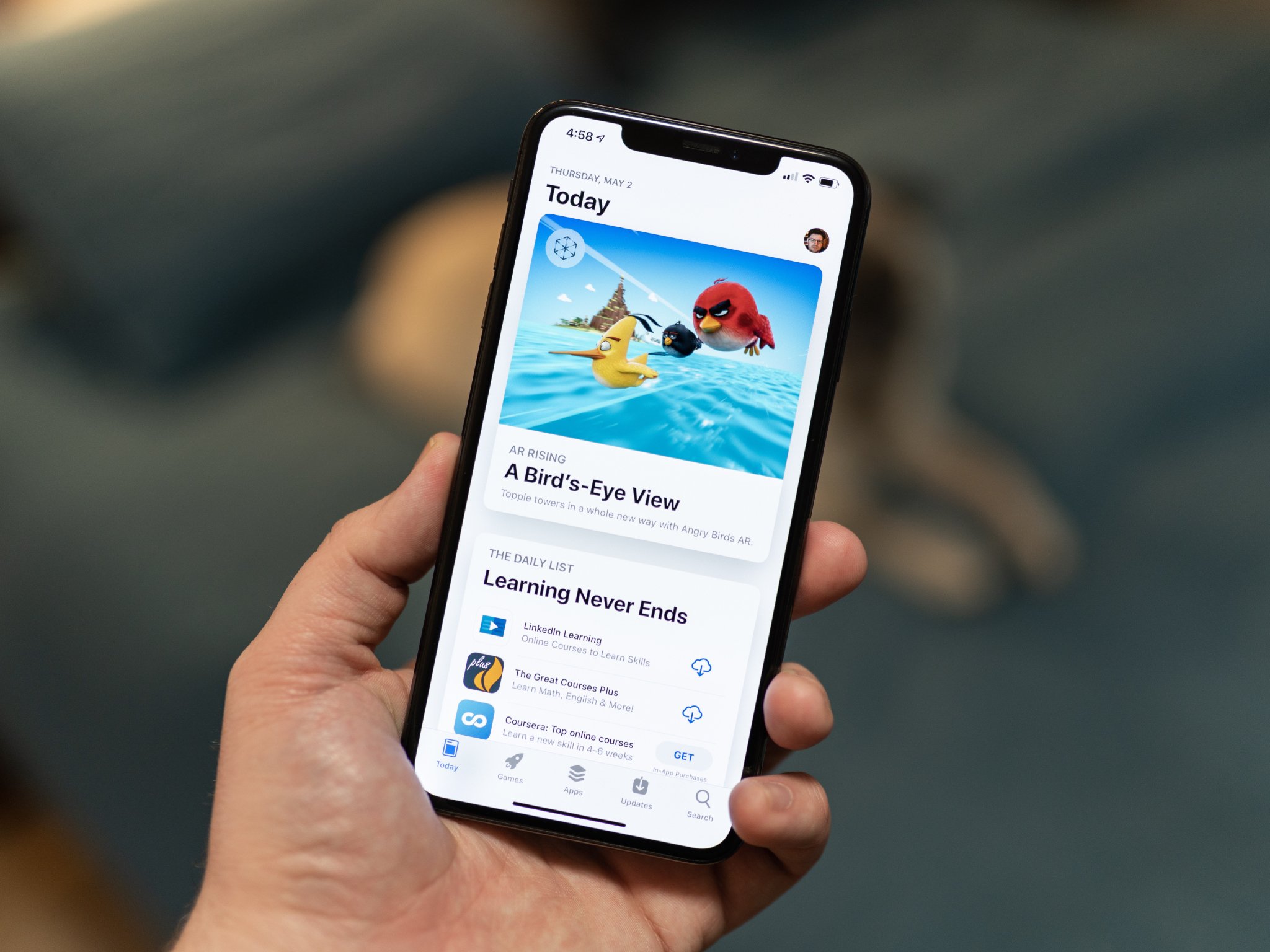Has Russia opened an antitrust door that can never be closed?

iMore offers spot-on advice and guidance from our team of experts, with decades of Apple device experience to lean on. Learn more with iMore!
You are now subscribed
Your newsletter sign-up was successful
On November 22, 2019, Russia passed a law requiring that all electronic devices sold in the country must come with pre-loaded, Russian-made apps from July 2020. Earlier this week, it emerged that Apple had agreed to comply with this law and that from April 1, 2021, huge changes would be made to the operating systems of its iPhone, iPad, and Mac.
Starting in just a few days, Apple products sold in Russia (that's the Mac, iPhone, and iPad) will offer users a brand new prompt never before seen since the inception of iPhone OS in 2007. First noted by Vedomosti Business Daily:
Apple has agreed to comply with the rules of the law on mandatory pre-installation on gadgets of Russian software - from April 1, devices, when activated in Russia, will offer domestic applications. It was possible to agree on this during negotiations with the leadership of the Ministry of National FinanceA high-ranking source in the Ministry of Finance told Vedomosti about reaching an agreement with Apple. The agreements stipulate that the first time Apple is purchased in Russia, the user will see a dialog window when setting up, in which he will be asked to install applications from the government-approved list by default, Vedomosti said. It will be possible to refuse installation, removing ticks in front of certain applications, explains the source of the publication.
Later in the week, the change was confirmed by the ever-reliable Mark Gurman at Bloomberg, who had this to say:
Beginning April 1, when users in Russia buy a new iPhone, iPad or Mac, they will be prompted during setup with the option to go to a new page in the App Store to load the Russian software, Apple said on Tuesday. The applications that appear are being suggested by the Russian government, but Apple will only show apps that meet the company's App Store review guidelines.
When is pre-installed software not pre-installed?
These seem to be conflicting reports about the user experience that Apple customers can expect come April 1, Likely, both are true. Users will be prompted to visit a new App Store page, where they will be presented with a list of Russian-made software, each will have a check box that users will have to untick to confirm they do not want to have the software installed. It seems clear the system is "opt-out", not "opt-in".
Reports say that apps on offer will include clients for email, messaging services, antivirus software, payment apps, mapping software, and browsers. At the time of the law's passing, the bill's co-author Oleg Nikolayev said that a person using an iPhone might naturally assume that, with "western" apps preinstalled on the phone, there are no domestic alternatives, and that the bill was about "giving the right to choose".
The law is reportedly referred to colloquially as the "law against Apple". From Wired:
The pre-installed apps law came to be known as the "law against Apple," because it essentially dared Apple to pull out of the Russian market entirely rather than change the rules in the company's controlled iPhone ecosystem. Instead, Apple has carved out an exception that others, including Android manufacturers, have not. Google, which develops the open source Android mobile operating system, doesn't manufacture most of that platform's hardware directly, and it doesn't control which apps come pre-installed on third-party devices. (Google does make the Pixel phone but doesn't sell it in Russia.) Carved out an exception.

The move within the context of Russia as a state throws up all sorts of questions for another day: Who is developing the apps? (Which are promoted by the State) What is being done with user data? And, other questions about the privacy of Apple customers in the country.
iMore offers spot-on advice and guidance from our team of experts, with decades of Apple device experience to lean on. Learn more with iMore!
Yet a more globally pressing issue has also emerged, how will Apple survive opening a door to its iOS and macOS operating systems that can never be closed?
Everywhere Apple turns these days, it is staring down the barrel of a loaded antitrust complaint or, vocal criticism, Spotify in the EU, Epic Games in the U.S., French authorities, the Coalition for App Fairness, all of them, seemingly, have the same question on their lips. Does Apple unfairly promote its own software and services to the detriment of rivals and competitors, that have to pay Apple a fee and abide by its own rules to compete in the same sphere? The recent changes in Russia throw up all sorts of questions about one key aspect of antitrust law, pre-installed software. One example, is it right that Apple is allowed to compete with Spotify for streaming revenue on the iPhone when the Music app comes pre-loaded on a device, but Spotify is an App Store download?
And just like that, the freedom Apple carved out for itself with carriers in 2007 is no longer guaranteed worldwide. Now the OS supports it, they’ll all want it https://t.co/4NsVeuwazNAnd just like that, the freedom Apple carved out for itself with carriers in 2007 is no longer guaranteed worldwide. Now the OS supports it, they’ll all want it https://t.co/4NsVeuwazN— Steve Troughton-Smith (@stroughtonsmith) March 16, 2021March 16, 2021
Apple has now shown the world that, if a country puts its mind to legislating the App Store, iOS can be changed fundamentally in favor of developers, carriers, or the government.
"The question is indeed whether Apple has set a precedent by caving in Russia that will embolden lawmakers from the smallest U.S. states to the European Union to pass app store laws," says Florian Mueller, patent and antitrust litigation expert and app developer who has his own antitrust complaint pending against Apple. "If Russia can legislate on iOS app distribution, why can't--and why shouldn't--Hawaii, Maryland, or Georgia?"
If Apple can tweak iOS to let users install a third-party email client, or a web browser, at launch, then why not a third-party App Store, or a different music player? That, at least, is the question I'd be posing if I were Tim Sweeney at Epic Games.
Make no mistake, I do not for a minute think that Russia is legislating for a "fairer" App Store for the same reasons that the U.S. or the UK might want to, but regardless it has successfully done so, in the process seemingly shattering the mirage painted by Apple that says some of the doors to Apple's ecosystems have been closed, never to be re-opened. Indeed, Russia might have just blown one off its hinges.

Stephen Warwick has written about Apple for five years at iMore and previously elsewhere. He covers all of iMore's latest breaking news regarding all of Apple's products and services, both hardware and software. Stephen has interviewed industry experts in a range of fields including finance, litigation, security, and more. He also specializes in curating and reviewing audio hardware and has experience beyond journalism in sound engineering, production, and design.
Before becoming a writer Stephen studied Ancient History at University and also worked at Apple for more than two years. Stephen is also a host on the iMore show, a weekly podcast recorded live that discusses the latest in breaking Apple news, as well as featuring fun trivia about all things Apple. Follow him on Twitter @stephenwarwick9
